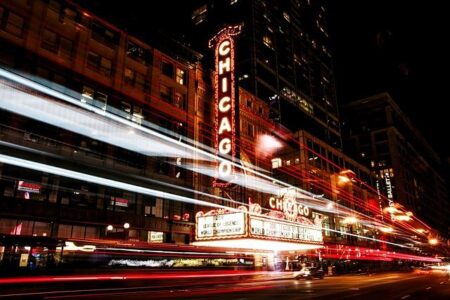Chicago’s Mayor Rejects Federal National Guard Deployment as Unlawful and Costly
Chicago’s mayor has forcefully opposed the federal government’s recent announcement to send the National Guard into the city, branding the plan as both unlawful and financially burdensome. She stressed that such a unilateral federal action undermines the city’s autonomy and disrupts ongoing local initiatives designed to enhance public safety through community collaboration. The mayor warned that deploying federal troops without proper coordination infringes on constitutional limits and risks intensifying unrest amid ongoing civic demonstrations.
Key concerns raised by the mayor include:
- Preservation of Local Authority: Chicago’s existing public safety framework is tailored to address the city’s unique challenges effectively.
- Financial Strain: Imposing National Guard deployment without local approval could lead to substantial unplanned expenses for taxpayers.
- Community Relations: Federal intervention threatens to erode the fragile trust between law enforcement and residents.
| Dimension | City’s Stance | Federal Proposal |
|---|---|---|
| Legal Authority | Upholds home rule and legal procedures | Considered unconstitutional by city officials |
| Budget Impact | Handled within current fiscal plans | Potentially millions in unforeseen costs |
| Effect on Community | Prioritizes rebuilding trust | Risk of escalating unrest |
Analyzing the Economic and Social Repercussions of Federal Policing Intervention
The prospect of federal forces stepping into local law enforcement has ignited serious concerns among Chicago’s leadership, particularly regarding the financial pressures such actions would place on a city already managing tight budgets. The mayor criticized the National Guard deployment as an unbudgeted expense that could divert essential resources from community-based crime prevention and social programs. Additional costs include logistics for troop deployment, overtime payments for local officers coordinating with federal personnel, and potential legal battles over jurisdictional authority.
Beyond monetary costs,the social consequences of federal involvement could exacerbate community tensions and undermine confidence in local policing. Critics point to several issues:
- Heightened Militarization: The presence of armed federal agents may intimidate residents,especially in neighborhoods with already strained police relations.
- Oversight Challenges: Conflicting chains of command between federal and local authorities raise accountability concerns.
- Community Alienation: Federal intervention risks distancing citizens from cooperative policing efforts and reducing civic engagement.
| Expense Category | Description | Estimated Cost |
|---|---|---|
| Police Overtime | Additional wages for extended shifts during federal coordination | Over $3 million monthly |
| National Guard Logistics | Costs for transport, equipment, and facility use | Approximately $2 million per deployment |
| Legal and Administrative Fees | Expenses related to lawsuits and inter-agency coordination | Variable; potentially millions |
Community Advocates Urge Cooperative Approaches Over Militarized Tactics
Leaders from various Chicago neighborhoods have collectively voiced opposition to the federal government’s militarized strategy, warning that National Guard deployment would strain resources without tackling the underlying causes of crime. They argue that an increased armed presence risks inflaming tensions rather than building trust between residents and law enforcement. Instead, they call for sustained funding toward social services, mental health care, and educational programs as more effective routes to enhancing public safety.
Highlighted priorities for genuine progress include:
- Community-Driven Policing: Models that emphasize transparency and resident involvement
- Youth Progress Programs: Initiatives that channel young people’s energy into positive activities
- Accessible Mental Health Resources: Embedding support services within local neighborhoods
- Economic Empowerment: Creating job opportunities to address systemic inequalities fueling unrest
| Proposed Initiative | Anticipated Outcome |
|---|---|
| Neighborhood-Led Safety Programs | Enhances trust and reduces conflict |
| Youth Engagement and Mentorship | Decreases juvenile crime rates |
| Expanded Mental Health Services | Prevents crises and supports recovery |
Experts Advocate for Strengthening Local Policing and Addressing Crime’s Root Causes
Criminal justice specialists and city officials alike emphasize that enhancing Chicago’s public safety cannot rely solely on increasing personnel or introducing National Guard forces. Instead, they recommend a complete strategy centered on community-focused policing combined with investments in social infrastructure. This includes equipping police with advanced training, fostering open interaction channels, and improving collaboration with local organizations to maintain safety without escalating community tensions.
Addressing the fundamental drivers of crime is essential for sustainable peace. Persistent issues such as economic hardship, educational disparities, and limited job prospects are widely recognized as catalysts for criminal behavior in Chicago’s most vulnerable areas. Recommended interventions include:
- Expanded mentorship and after-school programs for youth
- Improved access to mental health and addiction treatment services
- Investment in workforce development and affordable housing initiatives
| Challenge | Recommended Action | Projected Result |
|---|---|---|
| Economic Disadvantage | Job creation and training programs | Lower crime incidence |
| Educational Gaps | After-school and tutoring initiatives | Reduced youth delinquency |
| Mental Health | Expanded counseling and support services | Decreased substance abuse and related crimes |
Final Thoughts on the Chicago National Guard Deployment Debate
As the controversy over the proposed National Guard deployment in Chicago intensifies, Mayor Lori Lightfoot’s vehement opposition highlights the deep rift between municipal leadership and federal authorities. This conflict brings to the forefront critical questions about the legality, efficacy, and social consequences of militarized responses to urban crime. With public safety and civil liberties hanging in the balance, Chicago remains a focal point in the national conversation on how best to secure communities while respecting democratic governance and community trust.





